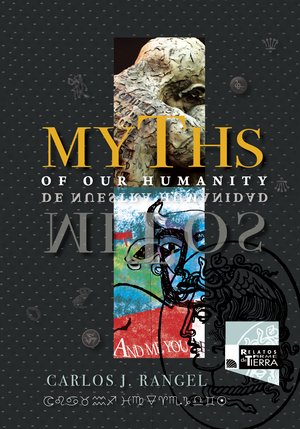
Every culture has myths, stories passed down throughout history to make sense of the world. For the author, a Venezuelan businessman, writer, and political analyst, myths are also crucial to how a population conceives and protects democracy. His bilingual (English and Spanish) book arranges, in 13 sections, pieces of visual art (including paintings, comics, and photography) and corresponding text with the goal of shifting “old recognizable stories in contemporary form to illustrate in a familiar manner modern ideas” in an “an exploration of humanity’s longing for liberty.” Some pairings have direct symmetry, such as the myth of Pandora’s box accompanied by a prose piece from Pandora’s perspective about unleashing “hate, pain, sickness, famine, war, division, [and] strife” upon humanity. But Rangel eagerly plays with form: A Zeus vignette takes the form of a news article; another reads as a scene in a screenplay with Sandro Botticelli; a third uses an internal memo within a conservative political party with less-than-subtle descriptions of a candidate resembling Donald Trump. One of the most arresting sections is a gruesome comic, with an epigraph by former Venezuelan president Hugo Chavez, that uses a zombie apocalypse as metaphor for how citizens pay the price for political apathy and extremism, with text like “He yanks our will. I’M HUNGRY! We are his will, he tells us so” to drive the point home. The ease with which Rangel weaves ideas and struggles from centuries and millennia past into the present political landscape, both in the United States and the world beyond, has a chilling effect. But like hope, left at the bottom of Pandora’s box, there is still the feeling that we can move forward, if only we heed our past.

